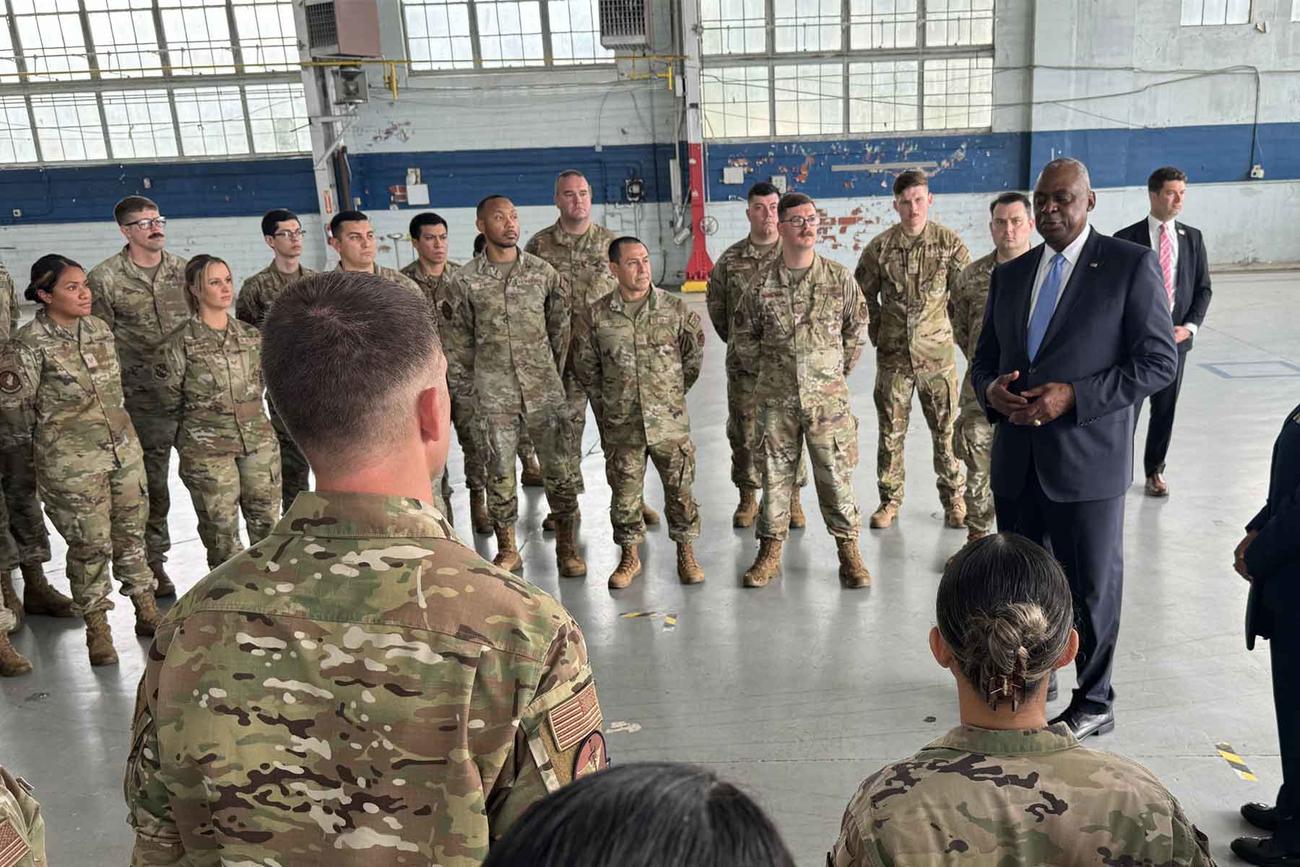

MONTGOMERY, Alabama — As he rolled out the latest batch of incremental improvements aimed at helping troops have easier lives, Defense Secretary Lloyd Austin said Friday that he wished he could move faster and be bolder.
“You can never move fast enough, but I do think we are moving,” Austin told reporters at Maxwell Air Force Base in Alabama on Friday.
Austin, along with first lady Dr. Jill Biden, traveled to the Air Force base — home to the service’s war college — in order to highlight the latest reforms that he has put in place, as well as the White House’s efforts to improve early childhood education in the military.
Read Next: Vance Would ‘Consider’ Expanding Private Care Options for Veterans if Trump Wins
The latest changes, which the Pentagon announced earlier Friday, include new pilot programs for Wi-Fi in barracks rooms, new health care options for troops, and looking into making enlisted uniform allowances more flexible.
One of the most immediate changes would make permanent change of station, or PCS, moves less stressful by offering longer periods of time for troops to use government funds to stay in temporary housing. Service members will now get 21 days of funds if they are moving inside the continental U.S. and up to 60 days if they are coming from outside the continent.
The other immediate change is making the “My Career Advancement Account,” or MyCAA, program available to spouses of active-duty service members serving in the top three enlisted ranks of E-7, E-8 and E-9, as well as warrant officer 3.
MyCAA is a scholarship fund of $4,000 that is aimed at helping spouses get professional credentials, certifications, or classes that enable them to work or grow their careers.
However, outside of these smaller immediate changes, most of the Pentagon plans and projects, such as new barracks buildings or facilities, have long lead times, and many service members may have to wait months, if not years, to reap the benefits.
But both Austin and senior officials under him acknowledged that, despite the changes they’ve already put into place, more needs to be done.
Reports about troops being unable to find affordable housing in some parts of the country, poor barracks conditions, or even service members struggling just to get food on base continue to persist despite the efforts of reporters to highlight the problems and military leaders to stamp them out.
“I would like to take a big chunk of money and knock all the barracks that have challenges down today and rebuild them today,” Austin said. “Our appropriation system … doesn’t work like that, and so you have to operate within the rules and the confines of that system.
“But having said that, I think Congress is very much interested in making sure that our troops have what they need,” the secretary added.
Underscoring the importance of the issue, Biden said that taking care of military families is “a national security imperative to the military families here today,” and she praised Austin for having a “willingness to seek out fresh perspectives and bring new depth to everything that he does.”
In speaking to both troops and reporters, the defense secretary noted that, when possible, he tries to use his influence and experience as a former Army officer to ease their lives in small ways.
Austin said when he and his staff were discussing increasing the housing allowance for troops, he insisted on making that change automatic.
“I didn’t want folks to apply for things,” he said. “I wanted them to wake up the next day, look at their leave and earnings statement, and see that they had already had money in the bank.”
Other benefits announced Friday that will be coming in the future include greater salaries for managers and supervisors at child care centers to help increase retention, a new health savings plan that more closely matches what employers offer civilians, and a review of uniforms to see whether they are sturdy enough to last as long as they are intended.
Related: Pentagon’s New Quality-of-Life Tweaks Aim for Temporary Housing, Uniform Allowances, Wi-Fi
